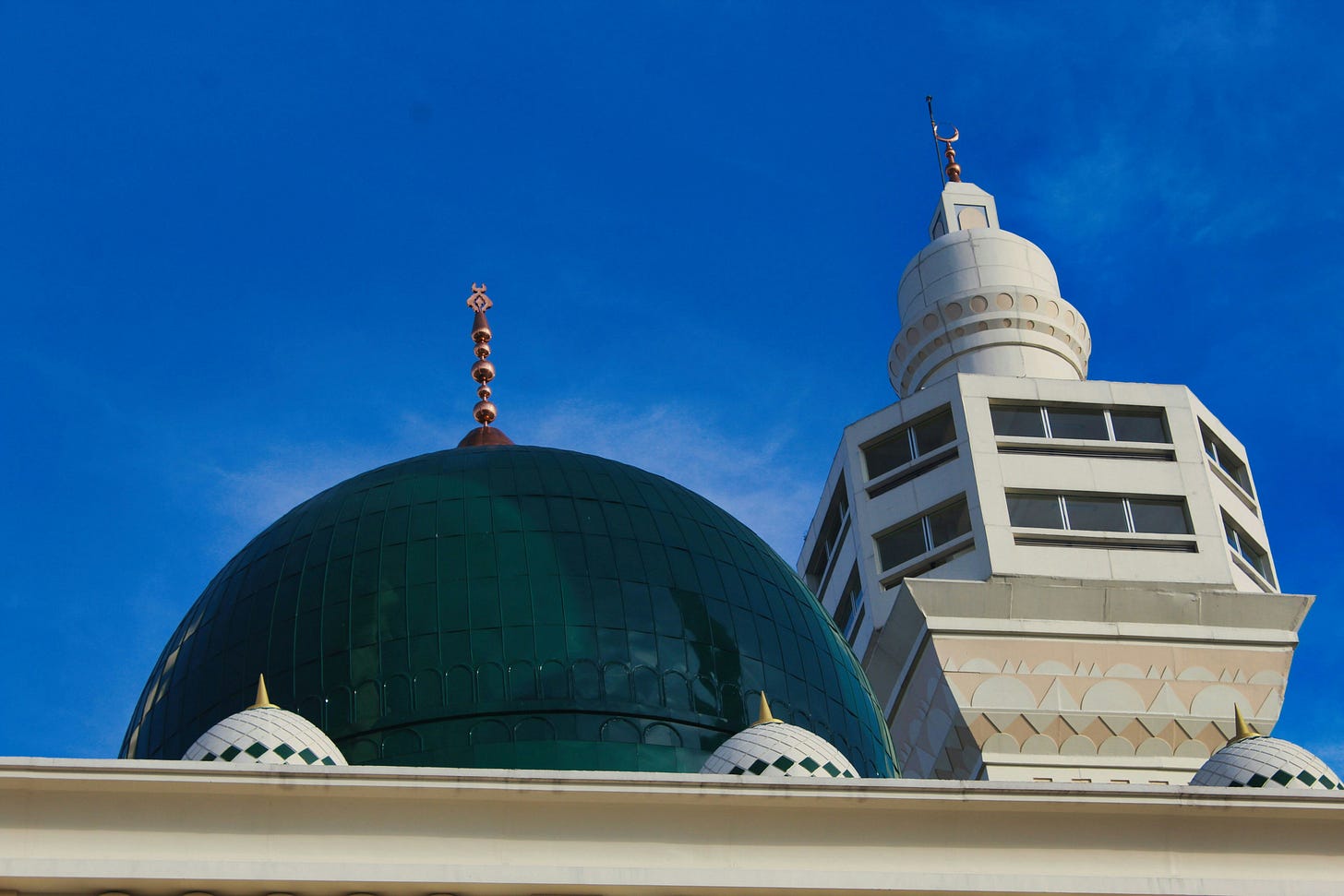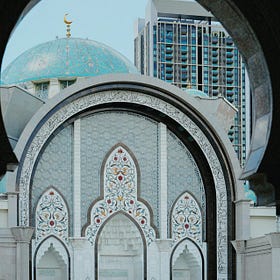5 Indonesian Halal Stocks: Tayyib Reality Check on EV Supply Chain Plays
Shariah compliant Indonesian stocks riding the nickel-to-EV value chain offer an opportunity to venture beyond Western or Chinese megacaps, with a caveat.
Indonesia, home to the largest number of Muslims globally and the newest member of the BRICS bloc of rapidly growing emerging nations, remains a largely untapped source of Shariah compliant investment opportunities.
One attractive angles lies in the country’s nickel sector that has just overtaken coal as the top export earner. Vertical integration efforts, started not long ago, have hit the mark: Indonesia now controls 60% of worldwide supply of the mineral critical in energy transition and particularly the production of electric car batteries.
This piece considers five Indonesian stocks, drawn from local Islamic indices, that sit in or adjacent to the nickel-to-EV value chain. A twofold assessment — for a tayyib fit (i.e. environmental and social conduct) in addition to basic Shariah screening — reveals credible Shariah credentials but vastly different tayyib profiles.
Vale Indonesia (INCO)
Vale Indonesia is a pure-play nickel producer supplying critical inputs for EV batteries and a veteran constituent of the domestic Shariah index. As a listed entity, the company fulfils basic sustainability reporting requirements.
Tayyib screening: Greenwashing
INCO may pass nominal Shariah and ESG criteria, but its activities have been responsible for systematic environmental destruction and community displacement — leading to blacklisting by 48 institutional investors.
Aneka Tambang (ANTM)
Aneka Tambang is a large diversified state-linked miner with major nickel operations and downstream ambitions. It has been one of the top movers in the Indonesia Sharia Stock Index (ISSI.JK) rally this year.
Tayyib screening: Mixed signals
ANTM has achieved some environmental recognition and put in the work to reduce greenhouse gas emissions. But recent enforcement resulted in restrictions on its nickel operations due to environmental violations.
Trimegah Bangun Persada (Harita Nickel, NCKL)
Harita Nickel is a high-profile producer of mixed hydroxide precipitate used in nickel-rich EV batteries. A top holding in Indonesian Islamic funds, the group has public ESG claims including an S&P Global Corporate Sustainability Assessment score.
Tayyib screening: Repeat offender
NCKL’s Obi Island operations represent perhaps the most egregious case of ESG violations in this cohort. Leaked documents spanning a decade reveal systematic pollution of the Kawasi community and medical complications as a direct result.
Merdeka Copper Gold (MDKA)
Merdeka Copper Gold offers copper and nickel exposure — the two metals most leveraged to electrification and EVs — and has featured consistently in the Jakarta Islamic Index universe.
Tayyib screening: Governance risks
MDKA’s complex organisational structure spanning battery materials, copper and gold across jurisdictions makes governance oversight challenging, although overall ESG impact is more limited compared to nickel giants.
Mitratel (Dayamitra Telekomunikasi, MTEL)
Mitratel is an operator of telecom towers — a critical asset supporting in the energy transition both smart grids and EV charging. Its asset-light Shariah-compliant business model makes it popular among local Islamic mutual funds.
Tayyib screening: ESG exception
MTEL is the clear ESG leader in this group. As a passive tower infrastructure operator, it contributes to the energy transition without the social and environmental costs of mining operations.
Looking for more Asia ex-GCC halal investment options? Read this:
Muslim Investors Should Look Closer to Home: The Case for Asia
The Western bloc has forever lost its claim to moral superiority. Media propaganda notwithstanding, their self-serving imperialist intentions are more apparent than ever. Needless to say, the impending demise of Western domination is not just political. The decline is also economical. The US, at the head of the bloc, is the primary cause.
Financial Performance Overview
The financial data reveals stark disparities across this halal-screened cohort.
NCKL leads in profitability with 18% ROE and 24% net margin, reflecting its lucrative nickel processing operations.
ANTM posted impressive 69% revenue growth in 2024, though modest 5% net margins are typical of diversified mining operations.
MTEL stands out with an exceptional 83% EBITDA margin, characteristic of asset-light tower infrastructure.
At the other extreme, MDKA made a net loss of $56m in 2024 despite 31% growth in revenue, given the capital-intensive nature of its expansion phase.
INCO shows concerning trends with declining earnings (-3% annually) and modest 1.7% ROE despite its dominant nickel market position.
Takeaway 1: Tayyib Investment Recommendations
AVOID: Vale Indonesia (INCO) and Trimegah Bangun Persada (NCKL)
Despite formal Shariah compliance and satisfactory financial performance, both companies are responsible for ESG offences whose scale and frequency make investing in them incompatible with ethical Islamic finance principles.
CAUTION: Aneka Tambang (ANTM) and Merdeka Copper Gold (MDKA)
Both require close monitoring: ANTM shows mixed environmental performance which could improve with better oversight; MDKA’s financial stress exacerbates governance risks. Neither should exceed small portfolio weightings.
CONSIDER: Mitratel (MTEL)
MTEL is the only name in this cohort that passes both Shariah and genuine tayyib screening. Strong financial metrics, minimal environmental impact and transparent governance make it suitable as a core holding in a halal EV-adjacent portfolio.
Takeaway 2: Lessons for Tayyib Investing
This review exposes the fundamental gap between basic Shariah compliance (focused primarily on debt ratios and prohibited sectors) and comprehensive tayyib screening that incorporates ESG substance. Three out of five companies with clear halal credentials — INCO, NCKL and partially ANTM — engage in practices that violate the broader ethical framework that should guide Muslim investment decisions.
For genuine tayyib investing — be it in Indonesia’s nickel-to-EV supply chain or whatever else — Muslim investors must look beyond compliance labels to examine actual ethical performance and exclude any complicit companies. The financial attractiveness of stocks alone cannot justify supporting what violates foundational Islamic principles of stewardship and avoiding harm.
Disclaimer: Nothing you read on Tayyib Finance constitutes financial advice. There is no guarantee of Shariah compliance of any particular stock at any particular time, since ‘Shariah compliance’ is fluid depending on the provider of judicial opinion and must be regularly affirmed. Similarly, there is no assurance that the same stock is simultaneously ‘tayyib’ (or Islamically ethical). Do your own research.


